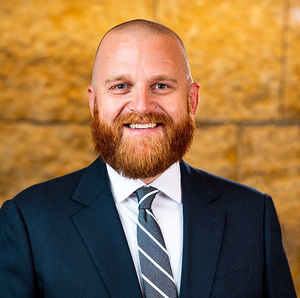We get information about the world from an array of sources. A little reflection makes this more or less impossible to avoid believing. We use our empirical senses to know all sorts of things about our environment. The way a plank of cedar feels to the touch is about the best evidence you can garner regarding whether youŌĆÖve sanded out the splinters. The way the grass looks in the light of day is about the best evidence we can garner regarding whether itŌĆÖs green.
On the other hand, no amount of literal daylight can reveal whether two plus two is four, or whether disjunctive syllogism is a valid principle of inference. For that, you need some sort of rational insight. How we manage this sort of insight is a tricky and disputed question, but few can doubt that we have managed it.
We also somehow manage knowledge of our own minds and hearts through our capacity for introspection. Self-aware people do this better than the personally oblivious. And we know the positions of our own bodies in space through proprioception. Athletes and dancers excel at proprioception; the clumsy do not.
Most of us naturally, without any reflection, put these disparate sources together in more or less complicated ways. When you string together empirical investigation and rational insight into complicated, historically meandering chains, you can do what we often call ŌĆśempirical scienceŌĆÖ. Add a little introspection and youŌĆÖre more or less doing psychology. Add technological amplifications of our senses into the long chain and youŌĆÖre doing something in the neighborhood of modern science!
Other forms of information arenŌĆÖt as obvious. For example, . But often people ignore or even denigrate emotions. (Look for future posts about this!)
But one source of information is particularly easy to overlook despite its centrality to our cognitive lives: knowledge mediated by others.
Philosophers talk about this exchange of information and knowledge as testimony. Testimony is wildly important to us. In , I tell a story about my friend Josh:
HeŌĆÖs one of the smartest people IŌĆÖve ever known, has a PhD in philosophy from one of the top two or three doctoral programs in the world. Josh grew up in Southern California with a younger brother. They were separated by almost exactly two years in age, birthdays just days apart. Despite that JoshŌĆÖs birthday was April 24 and his brotherŌĆÖs was April 27, they always celebrated together, with a single party. When Josh was close to turning sixteen, he needed his birth certificate to get his driverŌĆÖs license. His parents, after some rummaging, produced one for him. Josh studied it, and to his surprise and dismay discovered that the birth certificate reported that his birthday was April 27! His parents, it seemed, had confused JoshŌĆÖs and his brotherŌĆÖs respective birthdays. Josh had grown up mistaken about the day he was born.
This is so comically odd ŌĆö and traumatic for Josh! ŌĆö because it represents a failure of something we take for granted: the testimony of our parents about the day of our birth. How else are we supposed to know our birthday than by depending on the testimony of those who were present for our birth? ThereŌĆÖs just no other way!
Even the birth certificate is a form of written ŌĆ” wait for it ŌĆ” testimony. ThereŌĆÖs just no way of escaping the necessity of testimony for this sort of thing. ItŌĆÖs baked in.
And itŌĆÖs baked into all sorts of other things, too. ItŌĆÖs not only how we know our birthdays, but also our birth names. ItŌĆÖs how we know more or less anything about the past that we donŌĆÖt directly remember experiencing, whether that past is ours, our familyŌĆÖs, our countryŌĆÖs, or that of almost anything else.
And hereŌĆÖs the kicker: testimony is also how we know most of what we know about science. Not sure about you, dear reader, but I havenŌĆÖt run any experiments at the . Nevertheless I take myself to know that weŌĆÖve got empirical confirmation of the . How have I got this? Some scientists who actually ran the experiments told me so.
Well, actually they told some other scientists. And they told some journalists. Who told me.
IŌĆÖd encourage you take a moment to consider just how much of what you know, you know because you heard it from someone else, without any direct experience of the thing known. There isnŌĆÖt a domain of our understanding that is not profoundly shaped by testimony.
This is not at all bad! ItŌĆÖs just part of being human. We are social creatures, and we depend on one another for all sorts of things. Our dependence on testimony is just the application of this social dependence in the sphere of knowledge.
Thing is, great minds have long recognized the centrality of testimony. Here, for example, is Augustine in Confessions Book VI:
[My heart began to] reflect how innumerable were the things I believed and held to be true, though I had neither seen them nor been present when they happened. How many truths there were of this kind, such as events of world history, or facts about places and cities I had never seen; how many were the statements I believed on the testimony of friends, or physicians, or various other people; and, indeed, unless we did believe them we should be unable to do anything in this life. With what unshakable certainty, moreover, did I hold fast to the belief that I had been born of my particular parents, yet I could not have known this without believing what I had heard.[1]
The point of all this is simple: we are all wildly, unavoidably dependent on others for an understanding of the world around us and, indeed, for an understanding of ourselves.
The essential question becomes, whose testimony will you trust?
The good news for Christians is that we have access, through the Scriptures, to testimony from God Himself.[2] This is good news because God is not a liar, he knows all things, and heŌĆÖs more than able to communicate what he chooses to communicate. If we are looking for self-understanding ŌĆö for insight on who we are and how we should live in the world ŌĆö we have a natural and vital starting point.
And then we should, as Augustine so famously did, pick up and read.
I plan to return to testimony and to speech more generally in the coming weeks and months. We misunderstand what language can and cannot do, and this is to our peril. On one side, we overestimate what we can do with language, thinking that through adapting our speech we can solve some of the worldŌĆÖs deepest problems, including problems within ourselves. On the other side, we undervalue and underestimate the power of language to shape ourselves and our environment, leading us to miss or ignore opportunities to make the world a more Kingdom-oriented place. IŌĆÖll offer aides to help you navigate between these poles. WeŌĆÖll talk about names, about promises and about the Scriptures. The power of testimony and language, like the power of more or less everything, is also the thing that makes it dangerous. So weŌĆÖll talk about dangers, too.
Notes
This is from p. 141 of the second edition of Sister Maria BouldingŌĆÖs translation of The Confessions (New City Press).
I do not pretend to be defending the idea that the Scriptures are divine testimony. ThatŌĆÖs for another day. For now I merely assert what is true, and what I think we can know to be true: the fundamental nature of Scripture is that it is testimony from God Himself.
 51┬▄└“
51┬▄└“


.jpg)

